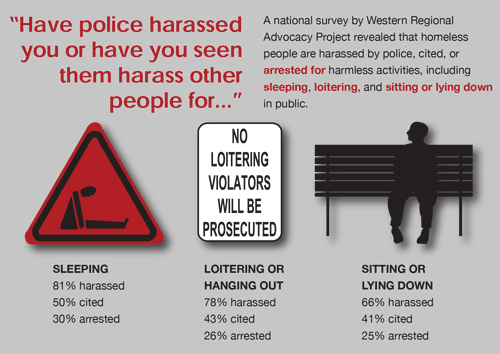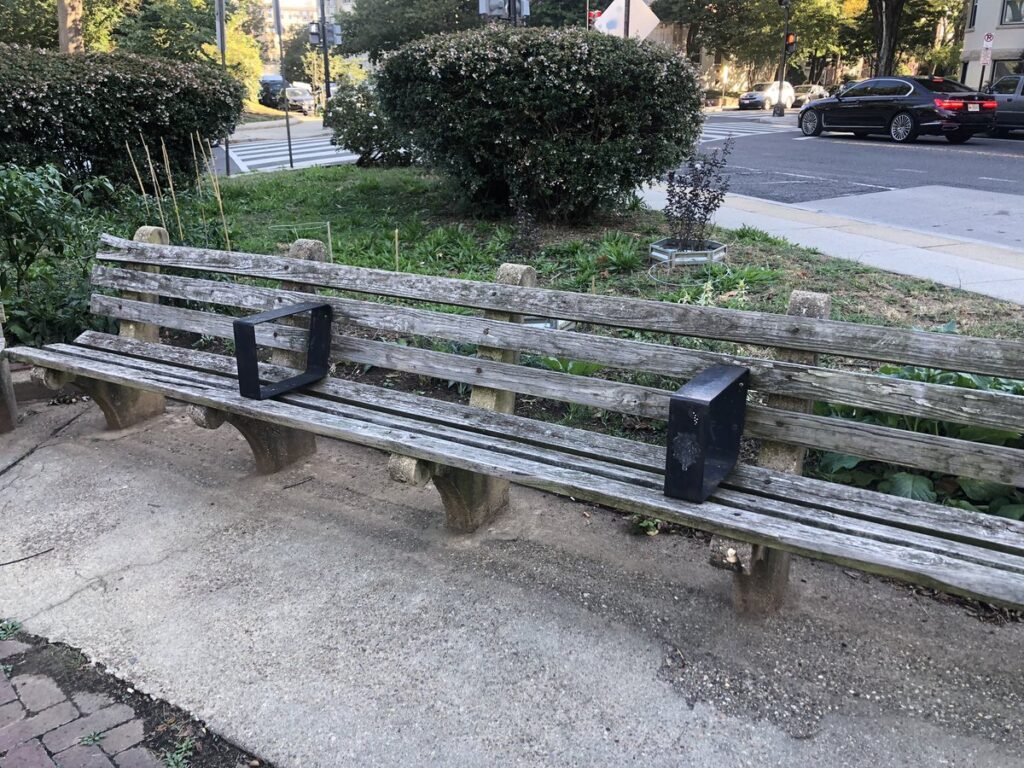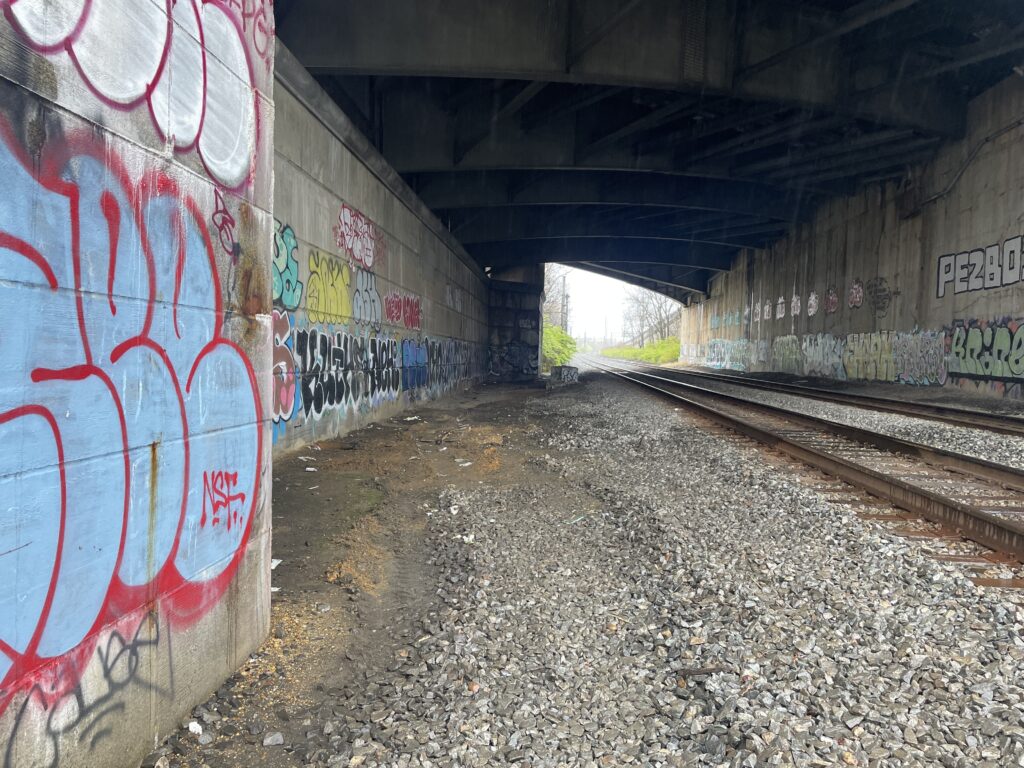Arnold Abbott made international headlines in 2014 when images of the then 90-year-old chef being arrested along with two ministers for sharing food with homeless people in Florida went viral. According to a Fort Lauderdale ordinance, food may only be shared at sites that are permitted for doing so.
Shortly after Abbott’s arrest, a local judge ordered that the law not be enforced. But the sudden media attention served to highlight a growing number of similar ordinances.
“What am I supposed to tell China and Russia when they call me to talk about democracy?” Abbott asked rhetorically in a previous interview with Street Sense.

According to a report released by the National Law Center on Homelessness and Poverty four months before this arrest, 33 percent of cities had made it illegal to loiter in public throughout an entire city.
Follow the Money
This year the Department of Housing and Urban Development (HUD) will provide $1.9 billion for homeless services in fiscal year 2015 through the annual Continuum of Care (CoC) grant program. For the first time, that funding will be partially-tied to how well applicants prevent the criminalization of homelessness.
Each Continuum is a coalition of government and nonprofit services that are expected to implement a full spectrum of homeless services within a given city or region.
A single administrator, in the District’s case this is The Community Partnership for the Prevention of Homelessness, applies for a block grant of federal funding to distribute to the coalition.
Through the competitive CoC application process, HUD uses a weighted point system to assess how well applicants are reducing homelessness and carrying out HUD’s plan. Points are awarded in 57 categories from submitting data on time, to following program models like Housing First, to housing more people in the Continuum.
“What we do is challenge local communities to engage with everyone on this issue of homelessness,” said Brian Sullivan, Public Affairs Specialist for HUD.
Ultimately, if an individual requirement is not met, a Continuum of Care will not lose its financial support. Each CoC can score a maximum of 200 points. Preventing the criminalization of homelessness, for example, is worth a maximum of two points.
“This is just a small case we ask our applicants about in this competition, that is just one of them. We award them up to two points if they are speaking to the local governments … working towards decriminalizing homelessness,” Sullivan explained in an interview.
Sullivan was unable to expand on how HUD will assess whether or not CoCs are adequately combating the criminalization of homelessness until the current funding competition closes. That information is seen as potentially providing readers with an unfair advantage over funding applicants that do not read this report.
This new criteria comes on the heels of a court ruling in Idaho where the U.S. Justice Department affirmed that criminally prosecuting homeless individuals for something as innocent as sleeping, when they have no safe and legal place to go, violates their constitutional rights. Many homeless individuals are unable to secure shelter because the city shelters are over capacity or inaccessible to people with disabilities. Enforcing these ordinances was deemed poor public policy.

HUD has long stood against the criminalization of homelessness, against bans on sleeping, loitering, food sharing and other “basic behaviors necessary for life.” But this is the first time the issue has been tied to the agency’s funding.
“If somebody does everything we ask them [preventing criminalization of homelessness], they get two points. If they don’t, you have to see it in context with all the other things we’re asking,” Sullivan said. “We are not going to defund them.”
Grants for existing CoCs are distributed based on meeting cumulative point thresholds, not scoring more than fellow applicants or scoring in a particular field. Each Continuum must meet a minimum score to renew previous funding. Surpassing a secondary national standard qualifies Continuums for new program funding.
Criminalization in the District
“We don’t have those really draconian laws that some cities do,” said Anne Marie Staudenmaier, a staff attorney for the Washington Legal Clinic for the Homeless.
D.C. is thankfully progressive when it comes to the criminalization of homelessness, according to Staudenmaier. She identifies interpretation and enforcement on the ground as the bigger issue locally. Staudenmaier pointed to three city ordinances most often used to ticket people experiencing homelessness.

One such ordinance mandates that no one may set up a “temporary abode,” such as a tent or parked car, without express permission from the mayor. This could be applied to most people that choose the outdoors over a shelter, but attempt to fortify themselves for the night in any way. According to the National Law Center on Homelessness and Poverty report, 43 percent of U.S. cities prohibit sleeping in vehicles and 34 percent impose city-wide bans on camping in public.
The “disorderly conduct” ordinance, which was amended several years ago to be much more specific and harder to abuse, can also be subject to interpretation. One remaining aspect of this regulation prohibits “incommoding” or obstruction of public passage. This can be used to target panhandlers and people with a lot of baggage.
The third regulation in question deals with “storage on public space.” The law has been on the District’s books since the 1800s, according to Staudenmaier. She posited a scenario when a public space where people may attempt to live, such as an underpass, is “cleared out.”
In addition to giving at least 15 days’ notice, local authorities are required to retain any items of value found during the clean-up, so that the owner can conceivably come collect them. But Staudenmaier suspects homeless people’s belongings are not adequately searched before disposal.
“If an ID is buried in the bottom of a black trash bag, the city is saying they don’t want to look through someone’s stuff,” she said.
On the Front Lines
Staudenmaier has been giving sensitivity training and an overview of these laws to every single Metropolitan Police Department (MPD) recruit since 2000. The Washington Legal Clinic for the Homeless created the required “Homelessness 101” class in partnership with MPD after criminalization of homelessness in the District became apparent to the organization.
During a recent class, she also lectured the recruits about Chief-of-Police Cathy Lanier’s general order that says “…people experiencing homelessness, have the right to be peacefully in any public place of the District of Columbia as long as their activities are lawful.”
The order also explicitly affirms that homelessness is not a crime. It is important to remember that the police have duties and rights when it comes to confronting homeless people, and when confronting them about breaking the law.
Another component of the class includes hearing from a person who has experienced homelessness first-hand.
On October 1 that person was native Washingtonian Alan Banks. He works with Friendship Place, a housing, case management and job training program based in Tenleytown. He also runs their speakers bureau, The Voices of Hope. Banks told the recruits about the six years he was homeless, three on the streets and three in the shelter system.

Nothing feels more degrading than living on the streets, according to him. Banks’ father passed away suddenly, which turned his life upside down and sent him into deep depression.
Now housed, Banks knows how quickly an incident can turn a person’s situation around.
“I will continue to speak to as many people as I can, getting them to understand that the face of homelessness is every face, that most people in this country are just one or two paychecks away from becoming homeless,” Banks said. “Another common step to end homelessness is to start in the home. The parents need to enlighten their children when they ask why that man sleeps on the streets, or why that lady eats out of the trash can. Tell them as it is.”
As winter approaches, MPD officers are also briefed on how to look out for the health of people on the street. Officers are given a list of symptoms—weak pulse, shivering, slow breathing and others—that may indicate hypothermia and the need for emergency medical assistance.
“You can’t insert the criminal justice system into homelessness, as a way of solving it. We know that it doesn’t solve anything,” said Brian Sullivan.
Sullivan drew a distinct line between people who are committing crimes, regardless of housing status, and people who are living on the street struggling to survive and being treated like criminals for doing so.
“Because HUD assigns so few points to the anti-criminalization efforts of cities, I’m not sure it’s going to have much of an impact,” said Anne Marie Staudenmaier. “But at least it shows that the Federal government is against local efforts to criminalize homelessness.”









